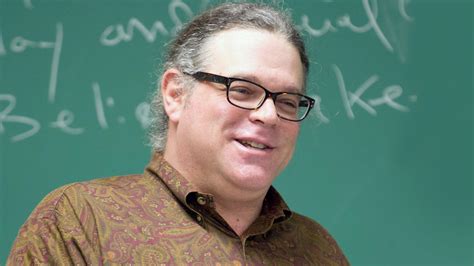A Quote by Kenneth Arrow
In my [Impossibility] theorem I'm assuming that the information is a ranking. Each voter can say of any two candidates, I prefer this one to this one. So then we have essentially a ranking. It's a list saying this is my first choice. This is my second choice. Each voter, in principle, could be asked to give that entire piece of information. In the ordinary Plurality Voting, say as used in electing Congressmen, we generally only ask for the first choice. But, in principle, we could ask for more choices.
Related Quotes
You go into the voting booths and you can rank your choices. So your first choice is an underdog that might not win, you know, that your choice number two, which might be your lesser evil, your safety choice, your vote is automatically reassigned from your first choice to your second choice if your first choice losses and there's not a majority winner. So it essentially eliminates, splitting it, eliminates having to vote your fear instead of your values.
Contemporary technology could be used to eliminate ownership and management of corporations. It could be used to provide - lets say Apple computers. In principle information technology could be used to provide direct information to the work force on the ground so that they could democratically decide what the company would do, eliminating the role of management. It could be used for that. People aren't developing technology for that purpose.
The states have the authority to change this voting system for president, right now, in fact, if they wanted, on an emergency basis, they could adopt a ranked-choice system, which simply allows you to go to the poll, and rather than rolling your dice and deciding whether to vote your values or your fears, you get to rank your choices, knowing that if your first choice loses your vote is automatically assigned to your second choice. It's kind of a no-brainer system. It works very well.
I say I'm the only serious comedian in the presidential race. And I'd like to take this opportunity to ask both Romney and Obama to debate me. Because I think that both of those guys - I think that the American people are being given a false choice, because the choice between the lesser of two evils is a false choice.
In an information economy, entrepreneurs master the science of information in order to overcome the laws of the purely physical sciences. They can succeed because of the surprising power of the laws of information, which are conducive to human creativity. The central concept of information theory is a measure of freedom of choice. The principle of matter, on the other hand, is not liberty but limitation- it has weight and occupies space.
And for me, it is a choice. I understand that for many people its not, but for me its a choice, and you dont get to define my gayness for me. A certain section of our community is very concerned that it not be seen as a choice, because if its a choice, then we could opt out. I say it doesnt matter if we flew here or we swam here, it matters that we are here and we are one group and let us stop trying to make a litmus test for who is considered gay and who is not.


































